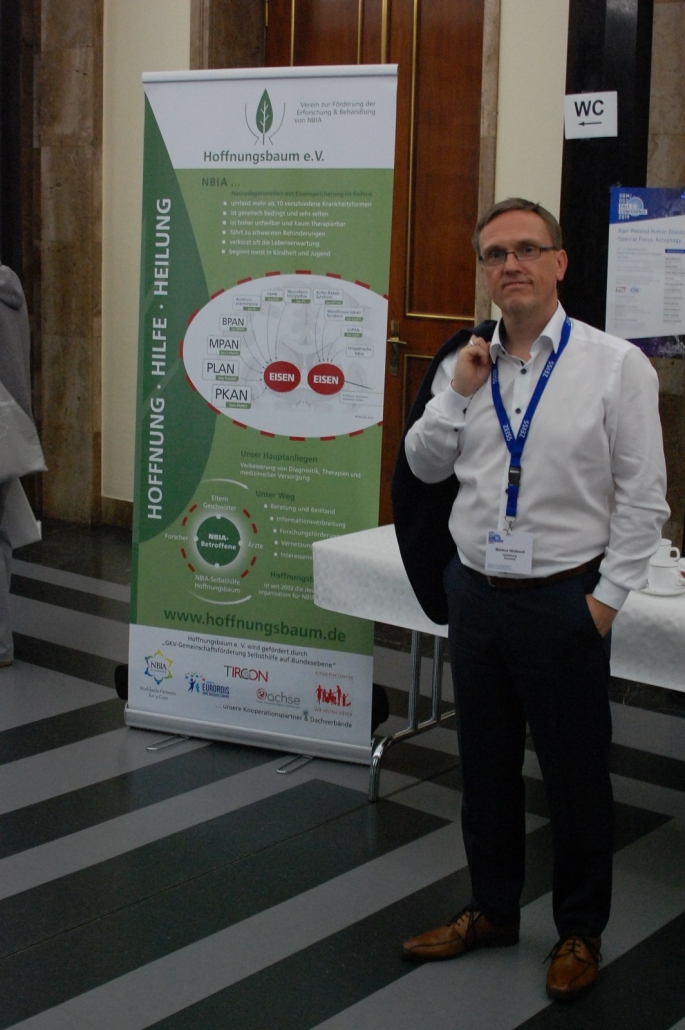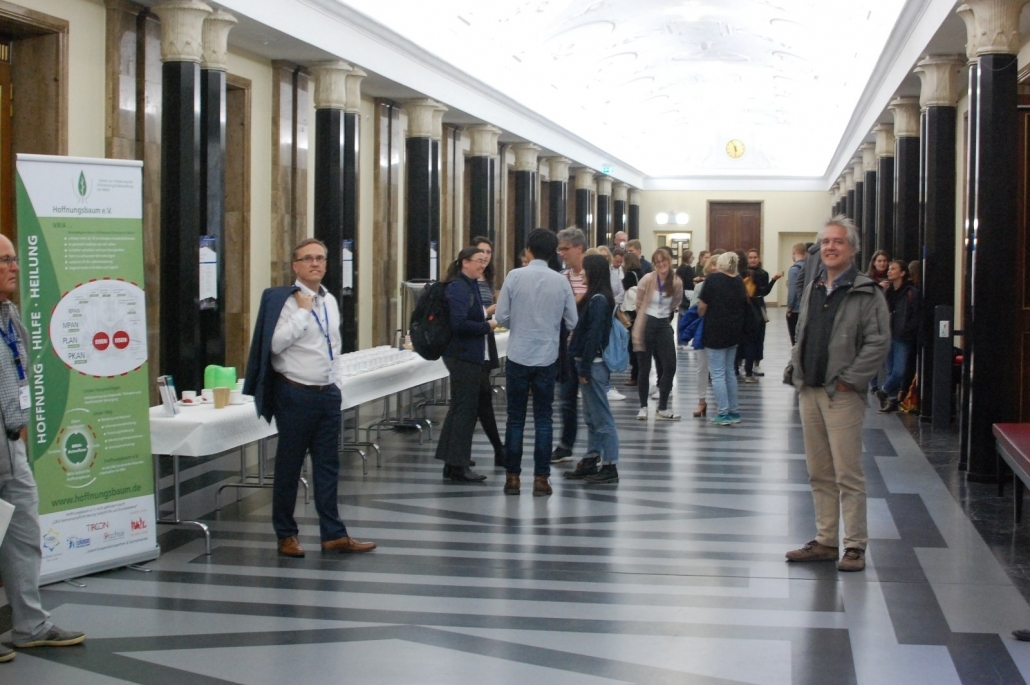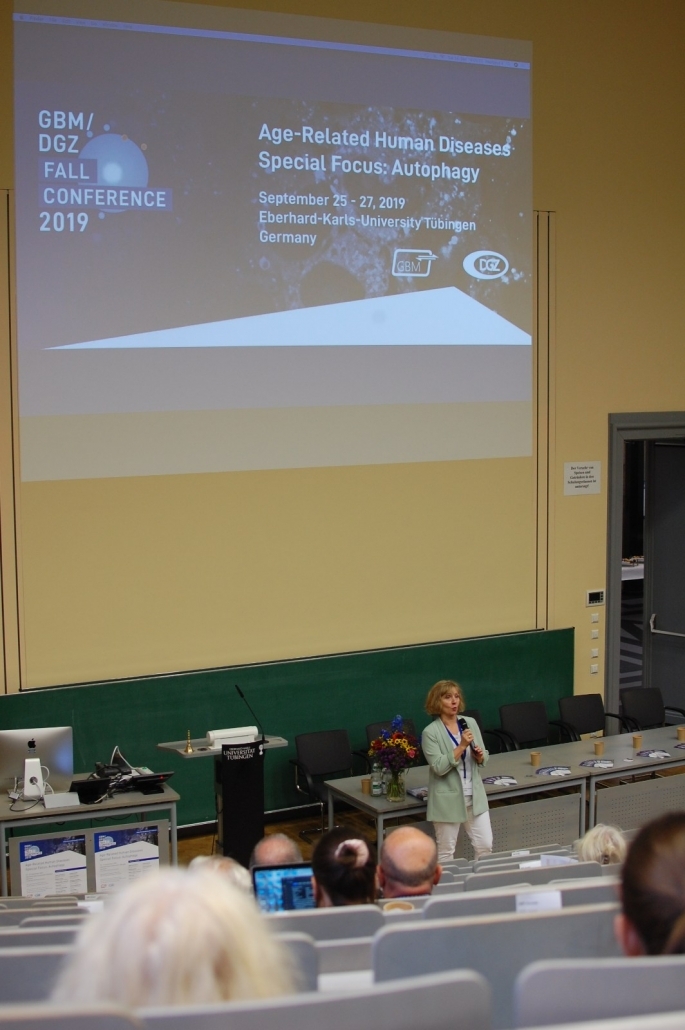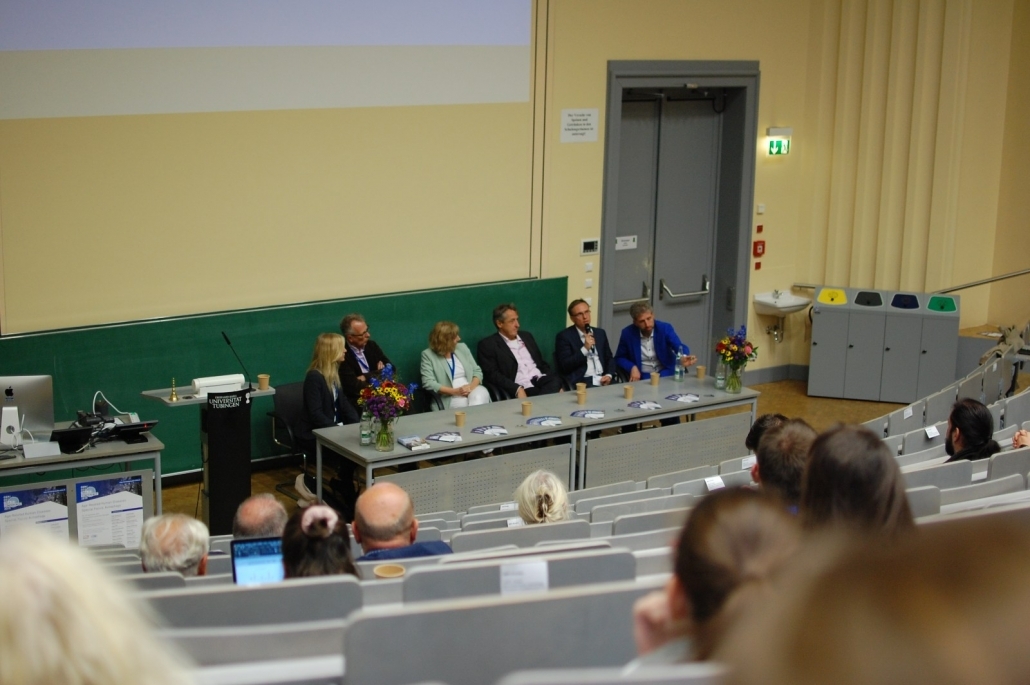Conference in Tübingen 2019
On 24 September 2019, Markus took part in a public panel discussion on the topic of “Autophagy and its importance for health and neurodegeneration“. It took place at this year’s Fall Conference of the Society for Biochemistry and Molecular Biology (GBM) and the German Society for Cell Biology (DGZ) in Tübingen. Markus was present as a representative of Hoffnungsbaum e.V. and introduced “Milly’s Mission” to the participants.
All images by Noah Rusch
The organiser and autophagy researcher Prof. Dr. Tassula Proikas-Cezanne had invited him to the discussion to represent patients with neurodegenerative diseases that begin in childhood on behalf of Hoffnungsbaum e.V.. Autophagy is disturbed in some NBIA variants, including BPAN. It is a cellular process responsible for the breakdown and recycling of substances that are waste products of metabolism and cannot be used by the cells. Autophagy ensures that these substances are broken down and made available to the cell again as building blocks. It plays an important role in age-related diseases such as Alzheimer’s and Parkinson’s.
Three renowned scientists took part in the discussion: Prof. Proikas-Cezanne, Prof. Dr. Christian Behl (Director of the Institute for Pathobiochemistry at the University of Mainz) and Prof. Dr. Frank Madeo (Head of the research group “Ageing and Cell Death” at the University of Graz). They were joined by the Lord Mayor of the city of Tübingen, Boris Palmer. The discussion was chaired by the well-known science journalist Ina Knobloch.
The one-hour discussion highlighted both the complex of topics “autophagy” as a health-relevant mechanism in old age and its disruption by congenital gene mutations, here with the example of BPAN. Markus had the opportunity to impressively describe how BPAN affects the lives of children and what challenges this disease brings for the affected families. This information is particularly interesting and motivating for researchers, as genetic diseases related to autophagy are also little known among them.
Above all, Prof. Proikas-Cezanne is very interested in deciphering BPAN. She discovered the gene WDR45 more than 15 years ago. The causative role of this gene for an NBIA disease, which was later named BPAN, was first described in 2012 by scientists from the TIRCON consortium. The protein WIPI4, whose function is impaired by the BPAN mutations, has also been extensively studied by Prof. Proikas-Cezanne and its role in autophagy has been uncovered.
This is the beginning of what could be a long partnership in the fight against BPAN. Prof. Proikas-Cezanne has already initiated a BPAN research project with public funding. We will inform about it as soon as we know more.





 DWIH New York - ARDA Workshop 2019
DWIH New York - ARDA Workshop 2019